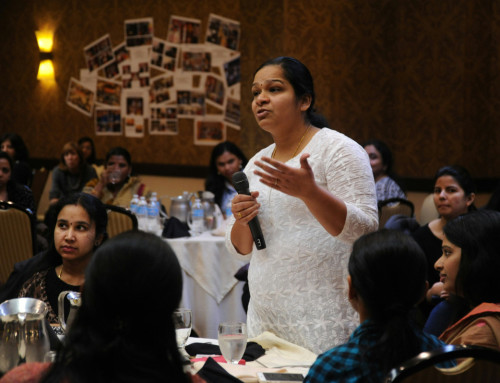I woke up this morning in no real hurry. Normally one to, more or less, get up at a certain time so I don’t feel too rushed in my morning (my very least favourite thing), I snoozed in. Just a little. I also didn’t hurry through breakfast, or the post-breakfast chat with my friend, before sitting down to get work done. Oh, and remember those three loads of washing that need to be hung out over the course of the morning too?
So it was just after 11am before I was able to start really focusing on what I had to get done today, knowing I was also heading out for the afternoon directly after lunch to workout at the gym before I taught yoga there. By this stage though, I started to have the feeling of frustration; in anything that continued to hold me up (I mean, who does that washing think it is??) or in me, in general.
I ‘should have’ gotten up at my usual time. I ‘shouldn’t have’ spent time connecting with another human in conversation. I ‘should’ be more on top of things. “That bloody washing.”
Really, the question I was asking myself was:
Why aren’t I doing enough?
The question we ask when we put ourselves under pressure and have high expectations on our performance, output, time spent.
While having a set of habits, standards or steps in place are certainly very useful when it comes to working on and achieving goals, having that feeling of annoyance where then every smaller thing bugs you even more is not useful. Or healthy. So the (next) big question is: How do I find the balance here?
Be kind to yourself
If, like me, you find you need a little extra rest, trust that. Trust that that is exactly what you need, and as a result, it may impact the flow of the rest of your day. There’s no point getting extra rest if it’s just going to stress you out and put you into overdrive to meet the expectations of fitting that same standard amount of work into your day, in less time. Unless you’re in the middle of a big project that requires a little bit of sway like that, you don’t need to fit the same amount of work into that one day. In this instance, you’ve rested so you can be more productive on the other days around it. Not so that you can bust yourself up and feel bad for it.
When your body or mind tells you extra rest is needed, and you choose to, choose it wholly.
Get some perspective
I mentioned I’m teaching a class in the evening after all of this during the day. This means that, by the time I do the COVID-clean afterwards, I’m not finishing my work day until somewhere between 8.30 and 9pm. So why should I start work at the same 8 or 9am? I know working for yourself is a whole different beast to standard ‘hours’ and expectations on yourself (oh, and it is), and the beauty is being able to choose your own hours – which, to be honest, rarely really happens in the way you think. I know we go into business for the love of what we do and to get away from the 9-5, but sometimes it’s healthy to look at things in that 8-hour workday perspective just to remind yourself that you’re actually likely already functioning in that 9+ hour workday. So does a slower start to your morning actually mean you’re being as lazy as you think?
Consider your time spent over a whole week, rather than just judging it based on one day.
Consider what else might underlying your reasons
Are you tired simply because you didn’t sleep well the night before, or did you not sleep well because of another factor that would do well to be addressed?
Hyper-arousal within the mind has been found to be a central underlying driver of insomnia, with the Centre for Disease Control (CDC) also labelling chronic sleep loss as an epidemic. While there are a plethora of reasons you might not be getting a good night sleep, or feel like you need extra rest even if you do, many of them are things that can be addressed.
Some are (but not limited to):
- Muscle energy – have you used your body and muscles adequately enough for them to rest?
- Lack of circulation – practices like yoga help with sleep due in part to the increase of blood and lymph circulation throughout the body and muscles, bringing your body into more of a balance in how the cells are distributed and how it then recovers, heals, and rests
- Busy mind – whether you need to talk it out (professionally or with a friend), get something off your chest, write out your to-do list for the next day the night before so your mind can rest knowing it’s already ready for you, or something else, having things on your mind is a big factor in energy levels and resting ability for many. Is there something you can be doing for yourself here to start addressing this?
- Missing the right nutrition – Sometimes when our diet is poor or not optimal for our bodies, it impacts how our body functions. This includes, you guessed it, how deep it also able to rest. When you eat poorly, your body isn’t getting what it needs to regenerate – which is a key part of what happens when we rest and sleep.
If nothing else, remember that all you can do is your best. There is always a chance to make up the work you feel you missed, but you’re likely more productive (with a little structure) with more rest than less.
Article originally published on Thrive Global.






